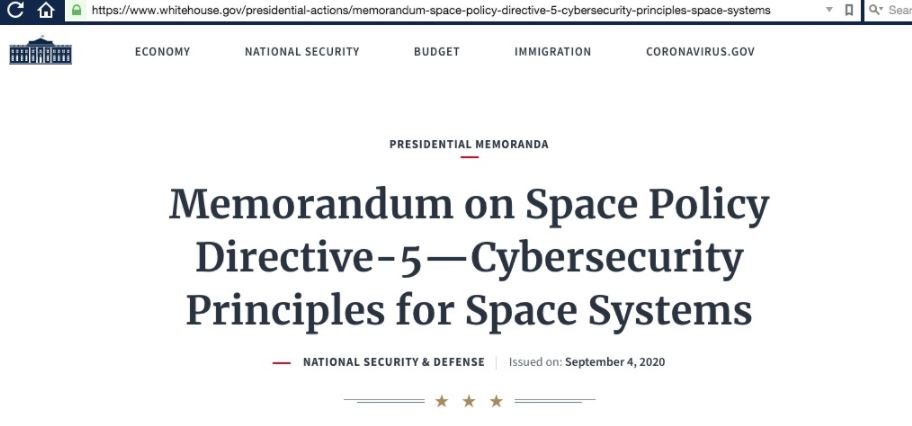Governments around the world are increasingly developing more and better protections against malicious hacking, in part thanks to initiatives to address potential attack vectors that were not considered as such in the past, as mentioned by information security experts. A good example of this trend is a recent directive issued by The White House calling on satellite manufacturers and operators to improve the security of their developments, aiming to prevent hacking and hijacking activities.
In this new Space Policy Directive 5, the U.S. government requests manufacturers to develop hardware and software deployments that can be monitored in order to detect “space system manipulation, disruption, and destruction, espionage and surveillance activities”. In particular, the government wants these systems to be restored in the event of hacking, hacking or counterfeiting.

According to the information security specialists, another risk covered by this Directive is the supply chain, a process subject to the intervention of threat actors that could end up affecting the security of space systems: “We call on satellite manufacturers to share the best information about potential security threats against the industry” , mentions the White House document.
Information security testing in space is an issue that the U.S. government is paying increasing attention to, partly thanks to the increased aerospace activities of actors such as China, Russia, and even India, who have developed multiple advances in the field of space engineering. As per a report issued by the U.S. Defense Intelligence Agency, Russia and China governments have invested considerable resources for the development of interference capabilities in space, including the creation of anti-satellite missiles systems.
Fears of attack are not unfounded. A few months ago, U.S. intelligence agencies reported a significant increase in the number of incidents that can pose threats against U.S. satellites and allied nations: “These attacks target data pattern monitoring, information manipulation, or system compromise,” says a representative of the Center for Strategic International Studies (CSIS).
Todd Harrison, director of the CSIS International Security Program, says this is a big step toward consolidating the best security systems in space: “It’s a good government measure, as our armed forces rely on multiple space systems for the deployment of many of their activities; eventually other nations will replicate this model.”

He is a well-known expert in mobile security and malware analysis. He studied Computer Science at NYU and started working as a cyber security analyst in 2003. He is actively working as an anti-malware expert. He also worked for security companies like Kaspersky Lab. His everyday job includes researching about new malware and cyber security incidents. Also he has deep level of knowledge in mobile security and mobile vulnerabilities.










